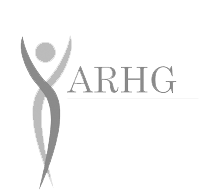Contact Mark today to book an initial consultation.






Emotionally Focused Therapy is a common and relatively new approach to Marriage Counselling. It is a collaborative client centered approach that blends with attachment theory. It focusses on the regulating role of emotions and acknowledges the need of attachment of intimate partners with their attendant fears and anxieties. The use of EFT in Marriage Counselling began around 20 years ago along with the reemergence of attachment theory. EFT in Marriage Counselling emphasis is on how emotional bonds are central to the change within the intimate connection between partners. Identification and expression of emotions in relationship counselling are seen as essential as emotion is viewed as an adaptive relational action. If Marriage Counselling can engage the partners with their emotions it is seen as conducive to lowering couple distress, and positive changes can be seen.
In Marriage Counselling EFT essentially assists distressed couples who have rigid interactional patterns and predicable emotional responses to enhance the development of caring secure bonds of attachment. This approach disrupts emotional states that are stuck patterns that distressed couples exhibit. Over time rigid patterns become reinforced, typical patterns recurring are critical pursuing and distance, defensiveness. EFT asks the clients in Marriage Counselling to observe their internal experiences exploring the cyclic interactional responses and ensuing patterns. Within Marriage Counselling EFT explores their key experiences of attachment fears and needs, these are explored and brought out into the open. During this process clients are not subject to judgment, moralizing or labelling. But assisted in the Marriage Counselling process to be seen as normal people struggling to deal with their unique relational patterns and in a social setting, something a good Marriage Counselor would suggest is his own experience back home with his own partner. To enhance and normalize things, attachment theory gives EFT in relationship counselling a non-pathologizing theory of understanding, that views emotional bonds as highly important and values interdependency, adult love and close emotional intimacy. EFT in Marriage Counselling has a strong emphasis on the power of the here and now experiences where present interactions, the Marriage Counsellor acts experientially as part of the system with the couple, he is active and can be directive, using techniques such as reframing and re-enacting family interactions back home for the couple. The difference from historical methods of counselling in Marriage Counselling is that EFT focus is on emotion as the key signaling system that arranges interactions in a family and a couple.
Fundamentally EFT in Marriage Counselling is experiential in that as a therapy clients are asked to become aware of their emotions and to process their meaning and impact. It is an owning of emotions because emotions are seen as healthy, powerful and informing. In Marriage Counselling disowning emotions is seen as a problem. Emotion should be seen as a healthy part of being human. The focus of Marriage Counselling when using EFT theory in practice is to gain the trust of the client to see human emotions as forming the basis for social connection and that these emotions constantly give us signs that say something unique about the nature of our social bonds.
Distressed couples in Marriage Counselling find powerful emotions need understanding and brought out. These emotions are indicators of our emotional needs that tend to control responses to our partner and reflect attachment patterns and also activate thinking about the self and the other and how we think about our relationship.
Emotions will pull for a response from others and can be central in how interactions are managed. A woman may be angry at her partner for not offering warmth or touch and speaks about the partner lacking care and angrily states that he has not met her needs, her partner withdraws out of anxiety, fear and perception that he needs to be self-protective at that time. Later as she moves through her sadness at being avoided and he establishes he is fearful and anxious at her perceived attack he may feel he can move towards her knowing he can manage his fears and take courage to be there for her and she then can trust as he speaks about what is going on inside.
With Marriage Counselling the theory of attachment is central in our thinking. The theory of attachment guides the Marriage Counsellor as he see’s typical responses manifesting in the sessions. Attachment theory can be very informing around why people tend to respond or react in certain ways. Marriage Counselling views the marital distress as unhelpful expressions of attachment related emotions. Marriage Counselling focuses the couple on the experiential affect of themselves and the other and the interpersonal patterns. Attachment patterns which tend to reflect style of relating are reflected upon in terms of when the couple feel secure or when one partner may feel a separation has occurred in the attachment bond. The attachment bond means the emotional tie between a couple, these create and manage proximity to the partner and these are at different levels for each person according to their attachment pattern. The emotions can be regulated by a partner if one is feeling more insecure and distressed. Marriage Counselling teaches healthy responses and assists the couple make secure bonds and improve understanding of needs. The responsiveness and accessibility are needed for the couple to feel secure within the relationship. These distress signals for attachment security in adults love are the same needs that babies express as early as 6 months of age, to a care giver. The baby searches in a sense for the care giver to respond in a way that is consistent and caring. For example a baby cries out and gets touches, smiled out or picked up. It becomes the care givers role to offer consistent safe attachment care and connect with the baby and offer emotional attunement and to know the multiple range of emotions the baby may be feeling.
Marriage Counselling relies on attachment theory to inform them about adult love relationships. It is a theory of development. We naturally seek love and intimacy with others, these essential connections and belonging are essential to our well being, it is how we flourish and thrive and forms our sense of self, and tells us who we are. As with children love and care provides the safe place to explore and feel secure, and gives the strength or secure base to then explore our worlds. Marriage Counsellors view a couple fighting in a session as two people fighting for their attachment needs to be met in a safe way, a fighting for safety and security. Marriage Counselling helps a couple turn towards the partner and to sooth that person. This creating of emotional closeness is the basis for physical passion and sex. Sexual behaviors bring couples closer in the same way the child gets a safe connection with their parent when the child is being held by that parent. Attachment studies tend to show that securely attached couples are better communicators, more satisfied generally and have deeper levels of trust.

Mark Roussel is a caring and compassionate family man who is a highly-experienced family, and relationship counsellor.
I acknowledge the Noongar people as the traditional owners of the lands where I live and work. I pay respect to their elders, past and present.